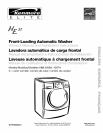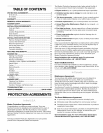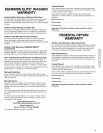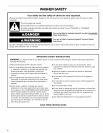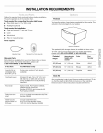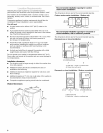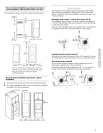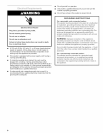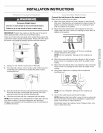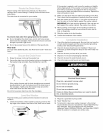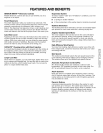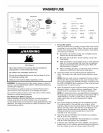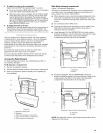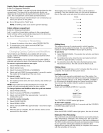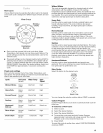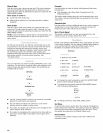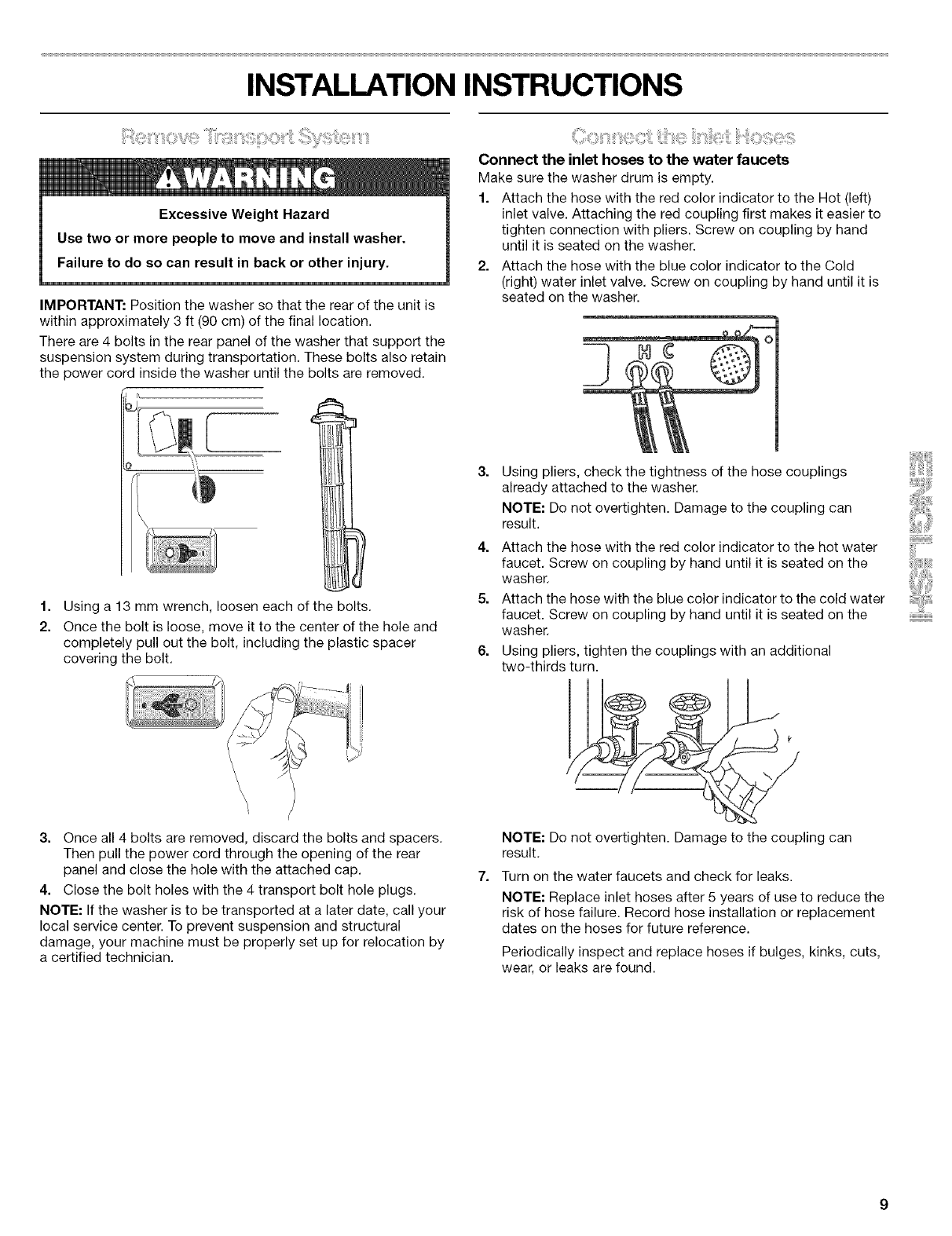
INSTALLATION INSTRUCTIONS
Excessive Weight Hazard
Use two or more people to move and install washer.
Failure to do so can result in back or other injury.
IMPORTANT: Position the washer so that the rear of the unit is
within approximately 3 ft (90 cm) of the final location.
There are 4 bolts in the rear panel of the washer that support the
suspension system during transportation. These bolts also retain
the power cord inside the washer until the bolts are removed.
1=
2.
Using a 13 mm wrench, loosen each of the bolts.
Once the bolt is loose, move it to the center of the hole and
completely pull out the bolt, including the plastic spacer
covering the bolt.
Connect the inlet hoses to the water faucets
Make sure the washer drum is empty.
1. Attach the hose with the red color indicator to the Hot (left)
inlet valve. Attaching the red coupling first makes it easier to
tighten connection with pliers. Screw on coupling by hand
until it is seated on the washer.
2. Attach the hose with the blue color indicator to the Cold
(right) water inlet valve. Screw on coupling by hand until it is
seated on the washer.
Using pliers, check the tightness of the hose couplings
already attached to the washer.
NOTE: Do not overtighten. Damage to the coupling can
result.
4. Attach the hose with the red color indicator to the hot water
faucet,washer.Screw on coupling by hand until it is seated on the
5. Attach the hose with the blue color indicator to the cold water
faucet. Screw on coupling by hand until it is seated on the
washer.
6. Using pliers, tighten the couplings with an additional
two-thirds turn.
3. Once all 4 bolts are removed, discard the bolts and spacers.
Then pull the power cord through the opening of the rear
panel and close the hole with the attached cap.
4. Close the bolt holes with the 4 transport bolt hole plugs.
NOTE: If the washer is to be transported at a later date, call your
local service center. To prevent suspension and structural
damage, your machine must be properly set up for relocation by
a certified technician.
NOTE: Do not overtighten. Damage to the coupling can
result.
7. Turn on the water faucets and check for leaks.
NOTE: Replace inlet hoses after 5 years of use to reduce the
risk of hose failure. Record hose installation or replacement
dates on the hoses for future reference.
Periodically inspect and replace hoses if bulges, kinks, cuts,
wear, or leaks are found.



